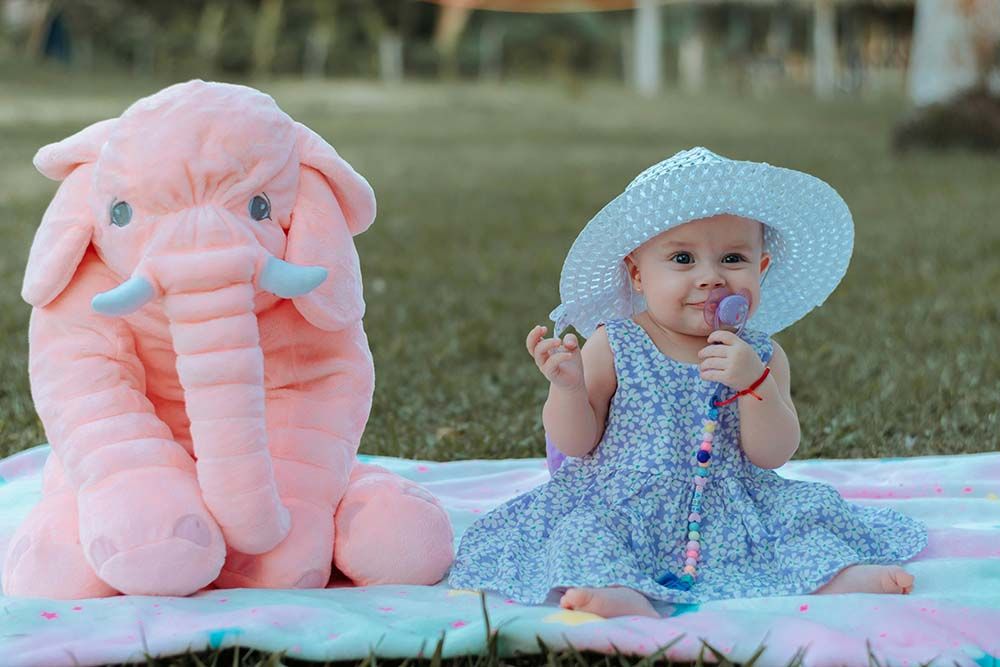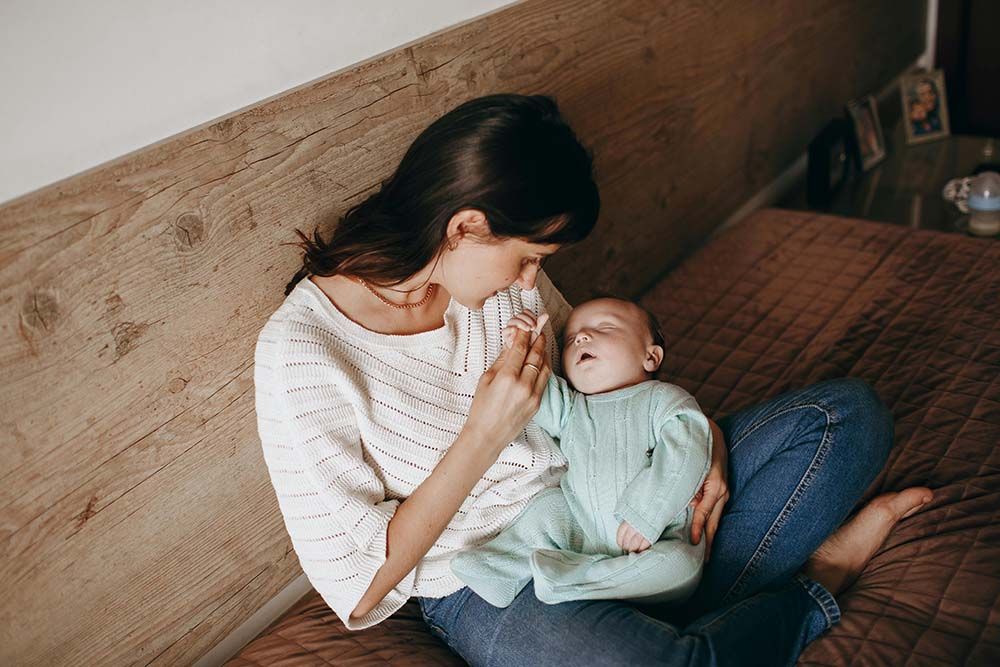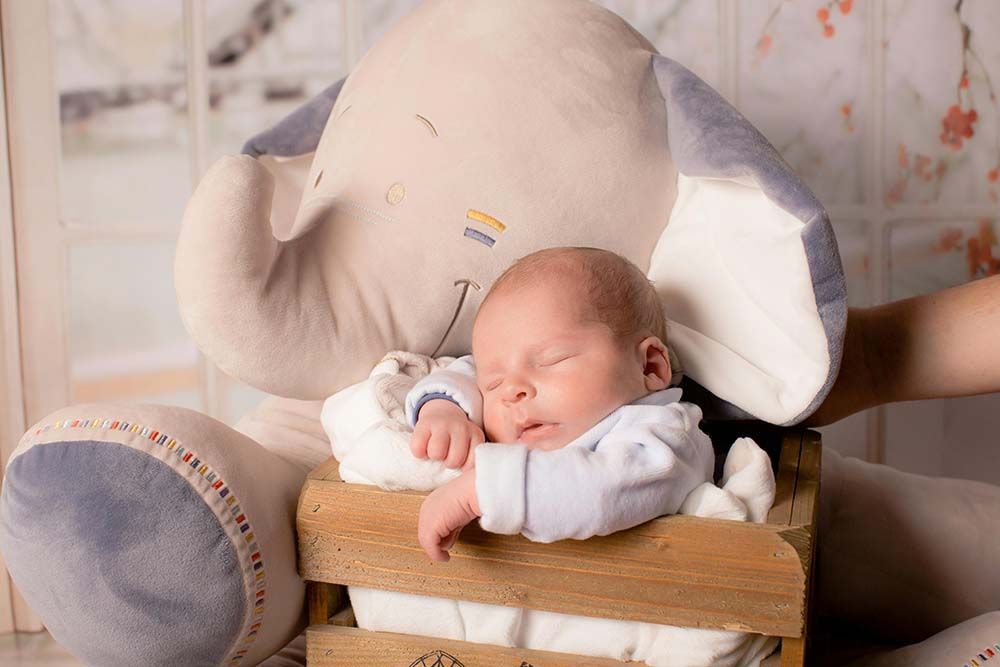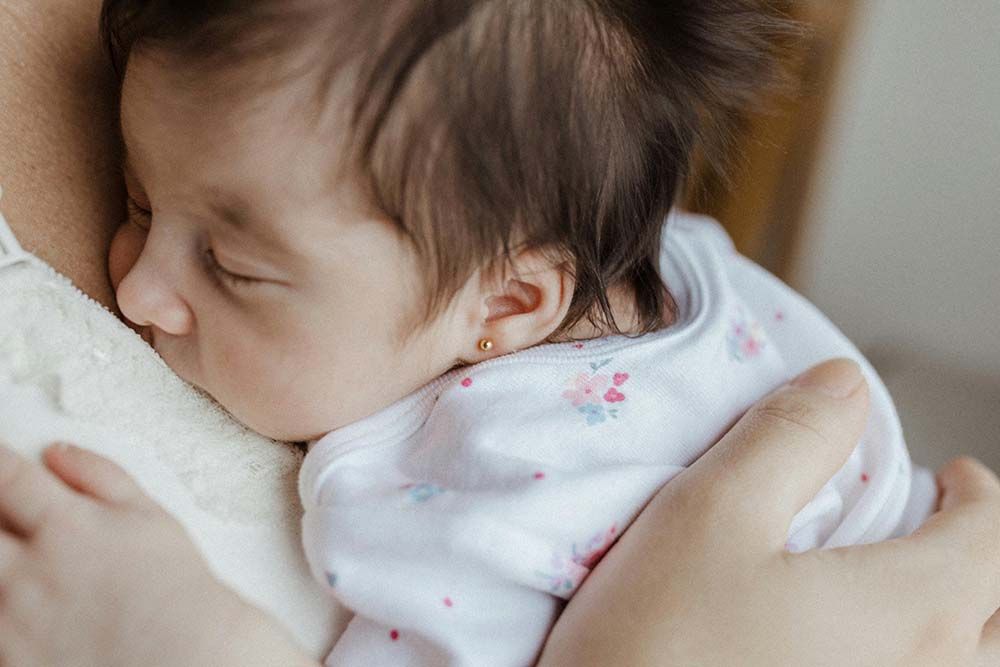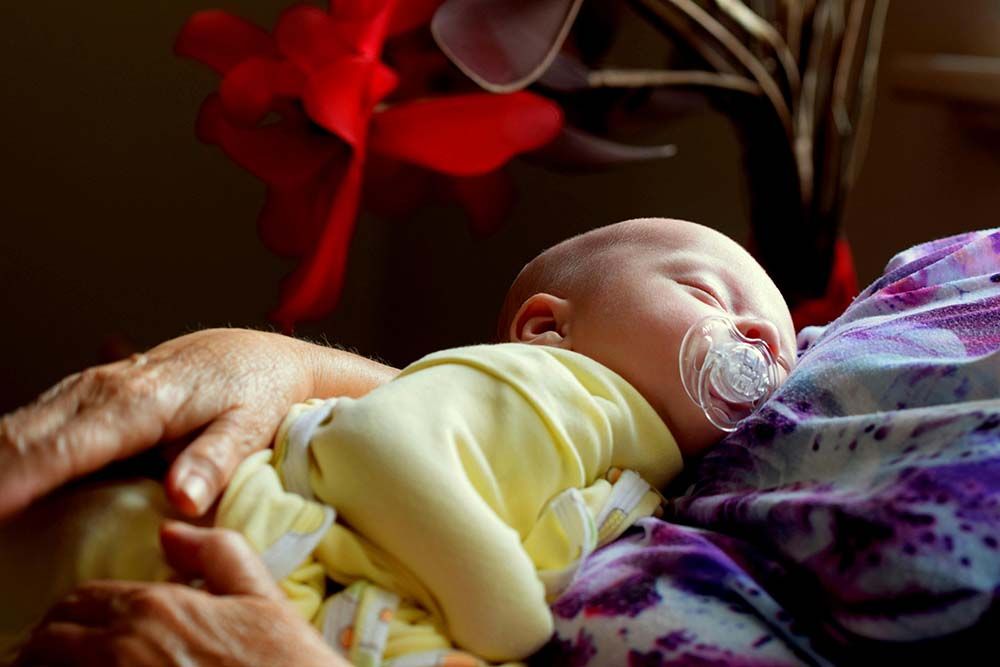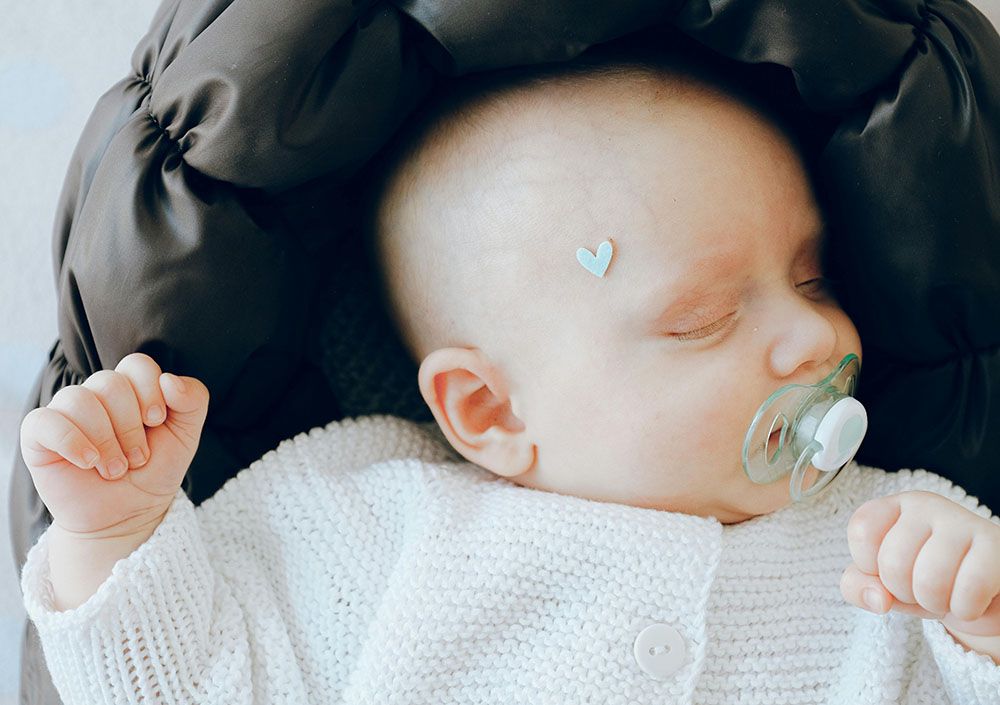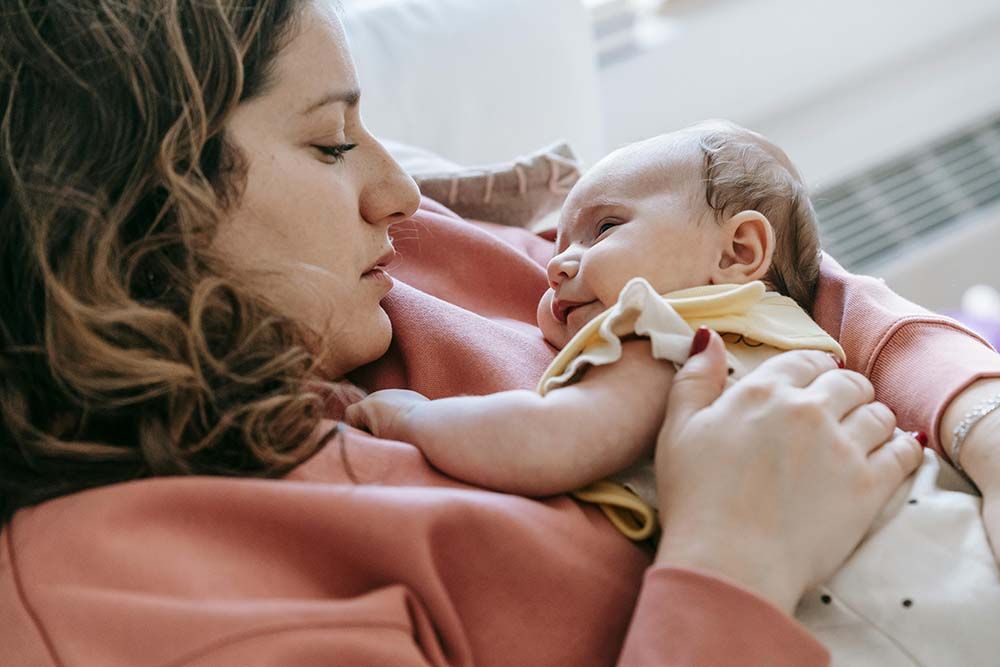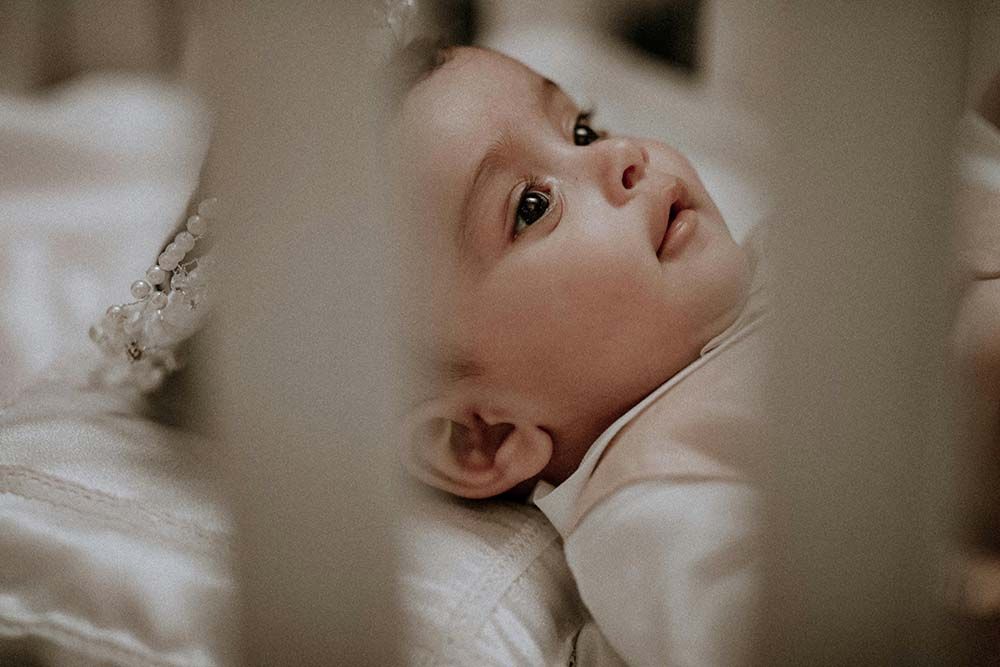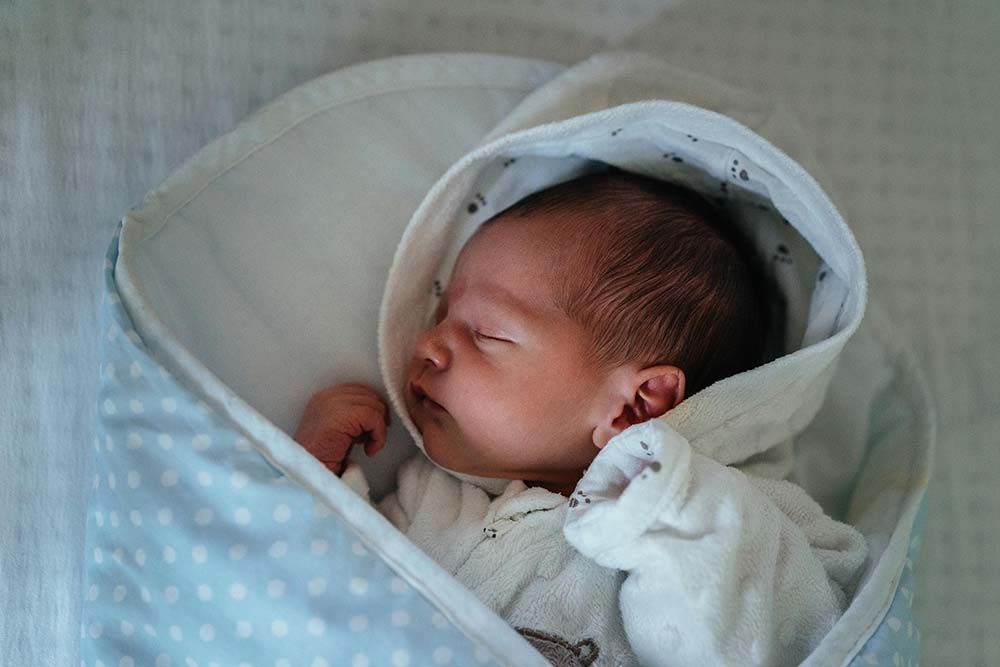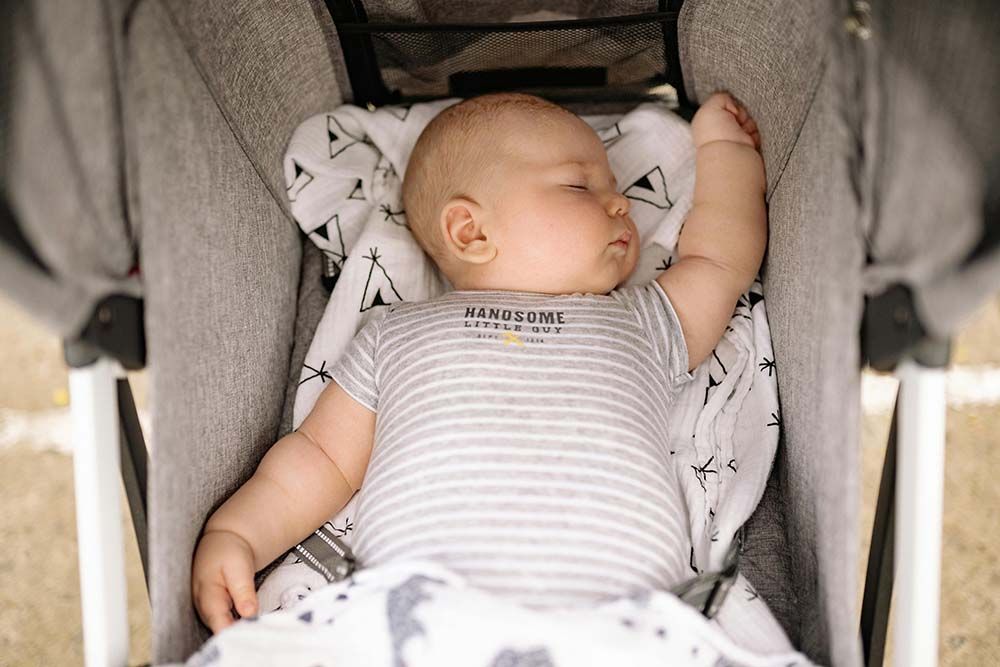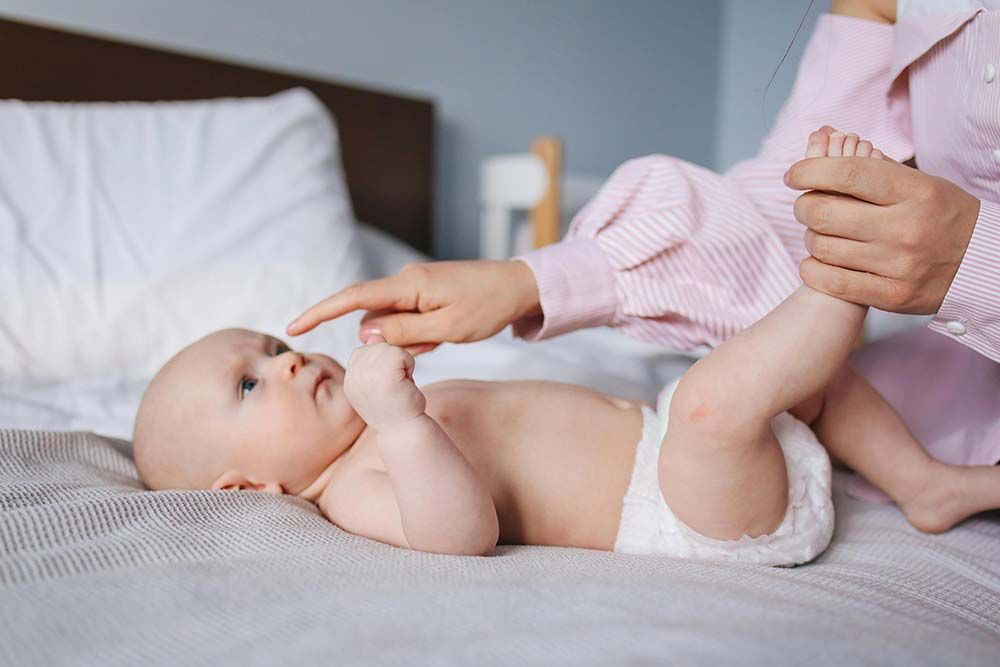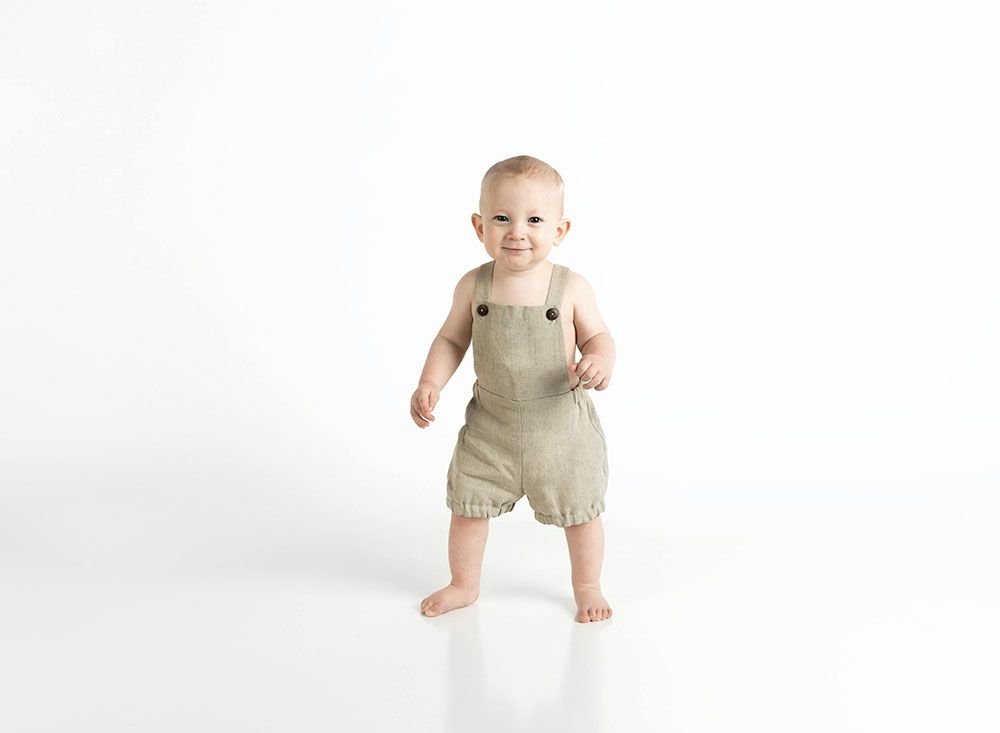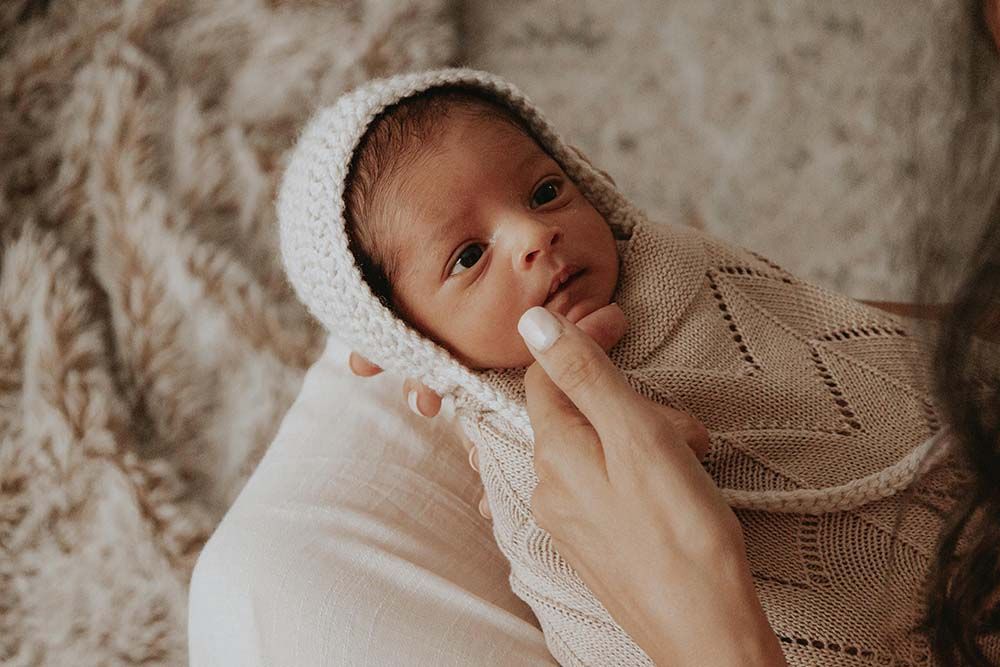

Sleep can be rather disorderly during the newborn stage, as babies won't commence following a typical 24-hour cycle for sleeping and eating until they reach 3 - 4 months of age. While we don't anticipate any regularity in terms of a schedule at this age, we have all the information you need regarding your 1-month-old baby's wake windows and sleep patterns.
Although newborns are too young for genuine sleep schedules, you can start practicing the basics of a sleep routine now. Form the habit of tracking your baby's naps and bedtimes in the Moonycare app to observe how your little one's sleep changes as they grow. And if you need some sleep support backed by experts? Check out Moonycare app, which offers customized baby sleep plans!
IN THIS ARTICLE:
What are Wake Windows for 1 Month Old Baby?
Sample for 1 Month Old Sleep Schedule
How Long Should a 1 Month Old Sleep?
How Many Naps Should a 1 Month Old Baby Take?
When is Bedtime for a 1 Month Old?
Baby Development Milestones for 1 Month
Activities for Supporting Your 1-Month-Old Baby's Development
What are Wake Windows for 1 Month Old Baby?
A wake windows is the time between two close naps or bedtime, which includes everything happened during this time, such as feeding, reading books, playing with toys, etc. It is recommended for parents to mind the amount of wake windows, because the long wake windows can lead to baby can be too overtired to get into sleep calmly in the short time, or haven't ready for the next nap if the wake windows are too short.
For the 1-month-old babies, it is reported that the wake windows is around 50-90 minutes. But people need to remember that wake windows are different to each baby. However, through experiences, it can be concluded that babies have shorter wake windows around the morning and longer wake windows before bedtime.
Sample for 1 Month Old Sleep Schedule
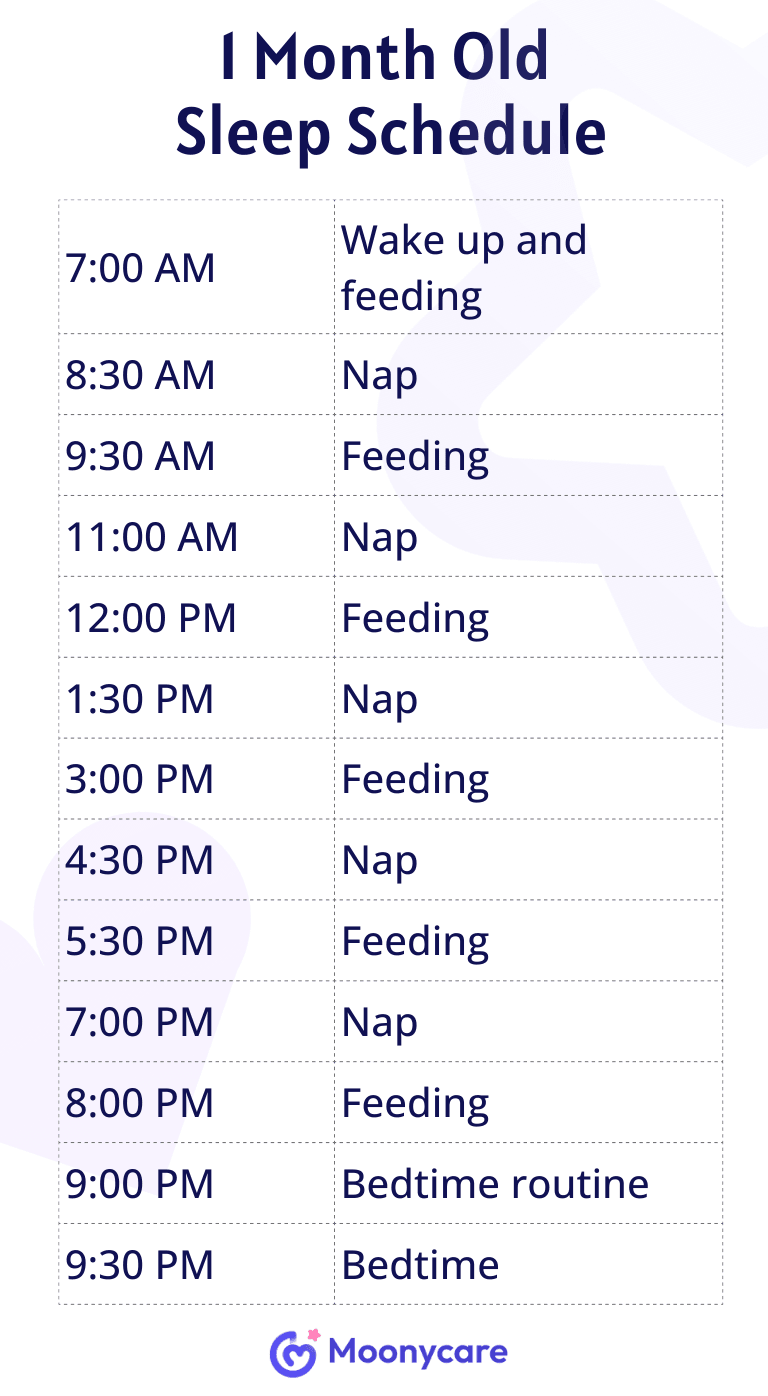
Note: It is just an example, and you don't need to try it strictly. It is advised to change the activity according to your baby's specific behaviors, containing wake time, nap duration, hunger and sleep cues.
How Long Should a 1 Month Old Sleep?
Every baby is unique, so there is no strict boundary to define how long should the baby follow.
Instead of fixating on the exact number of hours, it is recommended to make according adjustments by observing your baby's cues. Please make sure:
-
No nap exceeds two hours.
-
Wake Windows should be around 50 to 90 minutes.
-
Limit the total duration of your baby's night to 12-12.5 hours, including the time spent feeding during the night.
How Many Naps Should a 1 Month Old Baby Take?
Since newborns lack an organized circadian rhythm during their first month, distinguishing between naps and nighttime sleep can be challenging. At this time, adhering to a specific sleep schedule is not recommended. Newborn sleep is typically erratic, featuring both short and long periods punctuated by frequent awakenings for nourishment and comfort. The unpredictability requires parents to start a long-term observation on the sleep duration and patterns.
In fact, it is normal for naps to range from 20 to 120 minutes for one month old baby. So if your baby has been napping more than 2 hours, it is advisable to wake her/him up and then feed. Ensuring they receive enough calories during the day helps babies adjust their circadian rhythms, maintain ample nourishment, and start a longer sleep at night. By emphasizing daytime feedings, it is not only good for parents to support their baby's growth, but also facilitate the establishment of more regular sleep patterns for babies.
When is Bedtime for a 1 Month Old?
There is no one-size-fits-all answer to this question. Some one-month-olds thrive with a bedtime of 7:00-8:00 pm. However, other one-month-olds take a bedtime in the later evening between 8:00 and 10:00 pm. These infants often regard attempts at an earlier bedtime as if it were just a nap. Ultimately, it is essential to determine what works best for your baby.
Baby Development Milestones for 1 Month
Before talking about development milestones, keep in mind that every baby is unique and normal for them to develop at their own pace. Don't worry if you notice temporary delays in certain areas of development. Some babies reach them sooner, while others take a bit longer. There's no need to compare your baby with others. At one month old, there are various milestones to refer to.
-
Trying to put their hands to face
-
Tracking the dynamic objects in front of them with their eyes
-
Seeking familiar voices
-
Lifting their head for a short time from a flat area or when held
-
Responding to clamorous sounds
Activities for Supporting Your 1-Month-Old Baby's Development
Also, you can make some activities to prolong active awake time for 1 month old baby. But, remember that the concentration that babies at this age have is limited. Keep an eye out for the cues, such as crying, and then give them a break.
-
Make funny expressions: Just looking into your baby's eyes can help establish a trusting relationship with your baby to aid their full development.
-
Cuddle Moments:Cuddle your baby frequently. Soothe them well in the first six months for easier parenting later.
-
Visual stimulation: At this stage, babies are fond of bold-patterned objects. You can hang a mobile thing over the crib to excise their development.
-
Using toys:Babies perceive the world through touch. Show them diverse toys.
-
Talk with you baby: Have a talk with your baby by coos, gurgles and smiles. Let them turn towards your voice and imitate your "talk" to promote growth.
-
Physical engagement:Gently move your baby's limbs. Practice tummy time more to build up strength and coordination.




